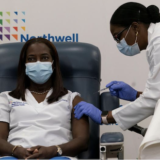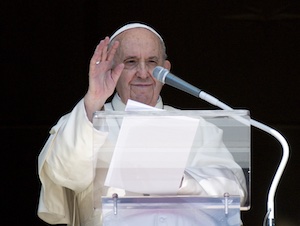Biotech firm Moderna has announced another Covid vaccine; it is safe and more than 90% effective effective, say US experts.
The analysis by the Food and Drug Administration’s (FDA) means it could become the second coronavirus vaccine to be allowed in the US. It comes after Americans began receiving jabs of the Pfizer-BioNTech vaccine.
Drug maker Pfizer had announced last week that its vaccine also was more than 90% effective.
US coronavirus death toll has passes 300,000, according to Johns Hopkins University. Approval of a second Covid vaccine in the US would be a big deal.
If approved by the FDA’s vaccine chief, shipments could begin within 24 hours.
The US has several million doses of the Pfizer-BioNTech Covid vaccine authorised for emergency use. Although mass vaccination has begun with these, getting access to the Moderna jab would mean millions more could be inoculated in the coming months.
Like the Pfizer jab, the Moderna vaccine also requires a second booster shot. Moderna’s second jab comes 28 days after the first.
Moderna’s vaccine may be more accessible in rural areas and developing countries than Pfizer’s. Moderna’s vaccine uses a different formulation that can last about a month in the refrigerator or six months in a standard freezer.
Pfizer’s shots require special freezers to store them at -70 Celsius (minus 94 Fahrenheit), which are not widely available. The vaccine only last a few days at refrigerator temperatures.
Moderna was founded in 2010 and so far has never had a product approved by the FDA. The company’s stocks have seen a nearly 700% increase so far this year. The company is based in Massachusetts and the “vast majority” of its vaccine would be manufactured there. Pfizer’s drug is being manufactured in several countries, including Germany and Belgium.
Both companies’ results are preliminary, scientists note. The final results may be better or worse. Outside scientists have not reviewed the data.
But “the vaccine is really the light at the end of the tunnel,” National Institute of Allergy and Infectious Disease Director Anthony Fauci told reporters. NIAID was part of Moderna’s study.
Moderna says it expects to have 20 million doses of vaccine ready to ship by the end of 2020 and up to 1 million available next year. Pfizer plans on 50 million doses this year and up to 1.3 billion next year.
The Moderna study included 30,000 people, split evenly between those who received the vaccine and those who received a saltwater placebo shot.
It is not yet clear whether the vaccine prevents infection, or just lowers the amount of virus enough to prevent disease scientists noted. Infected people can still spread the virus, even if they are not sick.
The results bode well for other coronavirus vaccines in the pipeline. Most of them target the spike protein, which the virus uses to enter cells and cause infection.
While most vaccines trigger the immune system by injecting a dead or weakened sample of the germ in question or a piece of it, the new vaccines inject genetic instructions for a part of the germ instead. The patient’s own muscle cells produce the germ part, which prepares the immune system to respond to a real infection.
Scientists can simply tweak the genetic code to design a new vaccine against a different disease. The manufacturing process and vaccine recipe would remain the same.
Results from several other vaccine trials are expected in the coming months. Nearly 50 are in human testing and more than 160 are undergoing lab tests, according to WHO.
(Picture courtesy: AFP)













